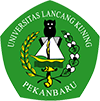Lexicology
Assalamu’alaikum wr.wb…I hope you always be protected by
ALLAH brothers. like usually,in this chance, I wanna continue our lesson about
linguistics exactly about Lexicology.
What do we mean by ‘word’ ?

A better approach to defining words is to acknowledge that
threre is no one totally satisfactory definition, but that we can isolate four of
the most frequently implied meanings of ‘word’ :
·
An orthographic word is one which has a space on
either side of it.
·
A morphological word is a unique form. It
considers form only and not meaning.
·
A lexical word comprehends the various forms of
items which are closely related by meaning.
·
A semantic word involves distinguishing between
items which may be morphologically identical but differ in meaning.
Word-formation

We have already looked at some of the methods of
word-formation in English. These can be summarised as follows :
·
Suffixation : man+ly > manly
·
Prefixation : un +true > untrue
·
Affixation : dis+taste+ful > distasteful
Other parts of speech can be cambined to form new words and
we provide selective examples of these below :
Noun + verb
Hair+do > hairdo
Blood+shed > bloodshed
adjective+noun
blue+bell > bluebell
hot+house > hothouse
adjective+verb
easy+going > easygoing
wide+spread > widespread
verb+noun
lock+jaw > lockjaw
scare+crow > scarecrow
verb+adverb
come+back > comeback
take+away > takeaway
adverb+verb
down+fall > downfall
out+cry > outcry.
New words are
formed in English by four other processes : coinages, backformation, blend and
acronyms. Words can be coined from existing material to represente a new
inventionor development :
Wireless
Television
Backformation involve the use of analogy to create forms
that are similar to ones already
inexistence in the language. Thus, recently we have derived :
Gatecrash from gatecrasher
Pop from popular
Blends involve joining two words together by taking parts of
both words and welding the parts intoa new whole :
Breakfast + luch > brunch
Chuckle + snort > chortle
Motor + hotel > motel
Word classes
We have looked at the form of some English words and we
shall now sort these words into classes according to the way they function. Words
in English can be function in many different ways. Thus ‘round’ can be:
A noun in : he won the first round
An adjective in :
she bought a round table for the dining room
A verb in : they
rounded the corner at eighty miles an hour
And a preposition in
:
He went round the track in four minutes.
In spite of the
flexibility of English words, we can use test frames to distinguish a number of
word classes which we shall list and then describe :
A noun has often
been defined as the name of a person, animal, place, concept or thing.
A determiner is
an adjective like word which precedes both adjectives and nouns,For example : I
ate some bread.
A pronoun is, as
its name suggest, similar to a noun in that it can take the placeof a noun or a
noun phrase such as : john met his future wife on a train.
Pronouns in English can reflect number, case and person :
Person singular plural
Nominative accusative
nominative accusative
First I me we us
Second you you you you
Third he him
She her they them
It it
In English also has a set of seven possessive pronouns :
Person
singular plural
First mine ours
Second yours
yours
Third his
Hers theirs
Its
English has six other tyoes of pronoun: reflexives such as
myself, themselves; demonstatives this,that,these,those and others.
An adjective is a
descriptive word that qualifies and describes nouns as in :
a cold day
he is tall
a verb is pften
defined as a ‘doing’ word, a word that expresses an action:
jhon climbed a tree
an adverb is used
to modify a verb, an adjective, a sentence or another adverb:
jhon talked strangely
a preposition is
a function word, such as at, by, for, from, to and with. For example:
he talked to jhon
a conjuction is,
its name suggest, a ‘joining’ word. There are two types of conjunctions:
co-ordinating conjunction such asand, but, and so. For example :
jhon and mary ran upstairs
and subordinating conjunctions which join subordinate
clauses to a main clause: he said that he was tired.
An exclamation
may be described asan involuntary utterance expressing fear, pain, surprise:
Oh dear !
Heavens above !
Those a few my explanations and for more explanation, i also had added a video to you, I hope they can help you to
understand about lexicology.
After words, thank you very much, see you.. :D


This comment has been removed by the author.
ReplyDeleteOk hello TM, i like color on your blog that is so feminime but the first can you say with your jellyfish don't distrub me when i read your blog??😂😂 oke TM i have question for you how the teacher can applied this materi from the student?
ReplyDelete